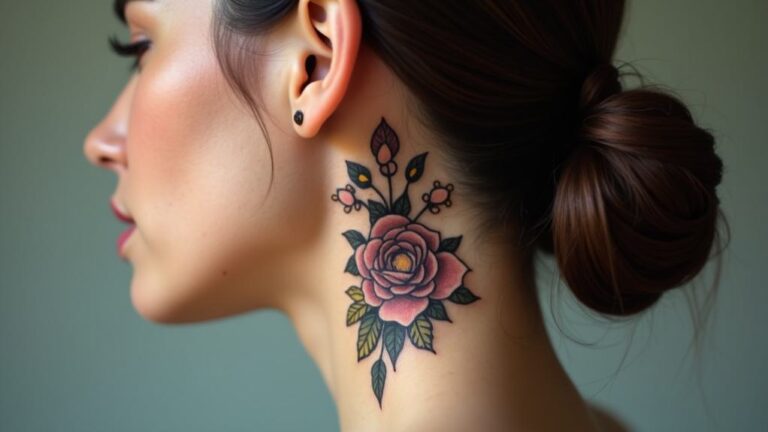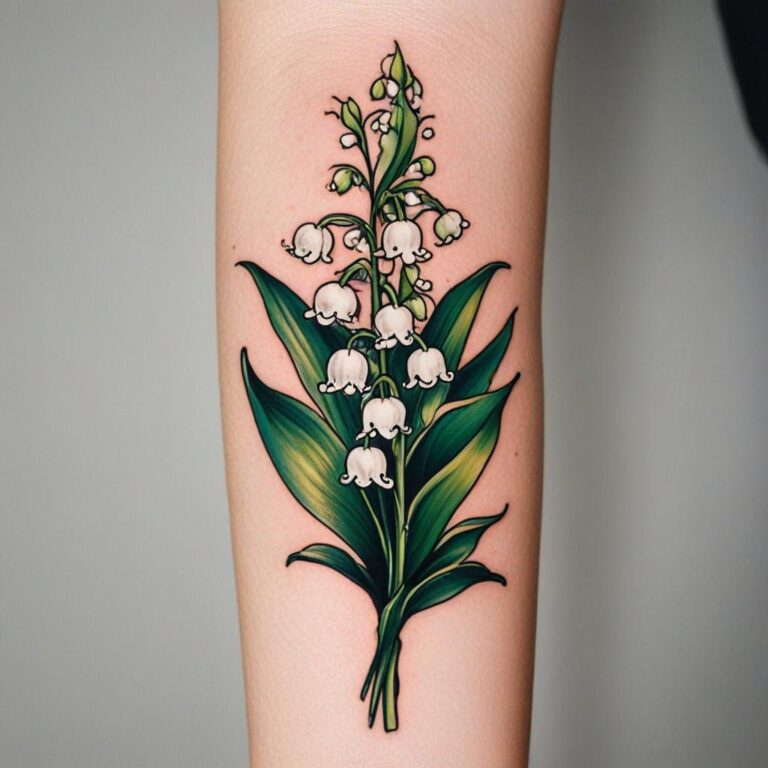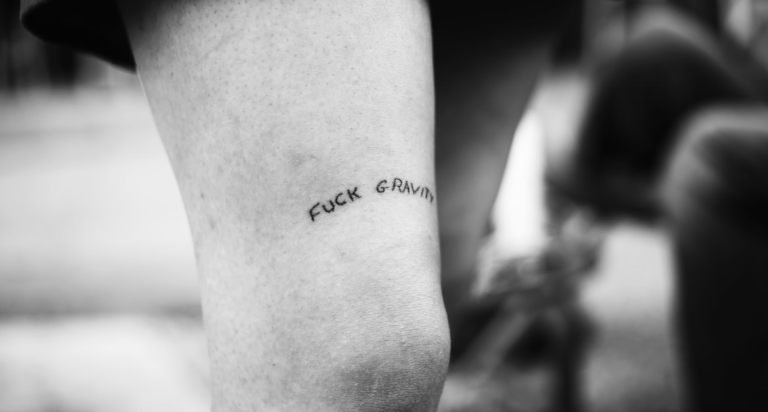Navigating the world of tattoos when you have eczema can feel like walking a tightrope. It’s a blend of excitement and caution, where the desire for art on your skin meets the reality of managing a sensitive condition. I’ve been there, and I know the drill.
Deciding to get a tattoo with eczema isn’t a decision to take lightly. There’s a lot to consider, from the risks of flare-ups to finding a tattoo artist familiar with your skin’s needs. I’ve gathered insights and tips to help you make an informed choice, ensuring your journey to getting inked is as smooth as your skin deserves to be.
Understanding Eczema and its Impact on Tattoos
As someone with a long-standing relationship with eczema, I’ve come to learn that managing this condition is a delicate balance. Eczema, for those unfamiliar, is an inflammatory skin condition characterized by itchy, red, and dry patches that can occur anywhere on the body. These flare-ups and the skin’s overall sensitive nature raise significant concerns when it comes to getting tattoos.
One of the main challenges of getting a tattoo with eczema is the uncertainty of how one’s skin might react both during and after the tattooing process. Ink application breaks the skin’s surface, a process that can potentially trigger eczema flare-ups or lead to infections if proper care isn’t taken. Moreover, the healing process can be particularly complicated. Tattoos essentially go through a healing phase where they scab and peel, which might exacerbate eczema symptoms further.
Here’s a brief overview of major concerns for individuals with eczema considering a tattoo:
- Risk of Flare-ups: The act of tattooing can irritate the skin, leading to potential eczema flare-ups around the tattoo area.
- Healing Complications: The normal healing process of a tattoo might be altered, with an increased risk of infection or prolonged healing times due to eczema.
- Ink Rejection: There’s a potential for the skin to react poorly to tattoo inks, causing the body to reject the ink or respond with an allergic reaction.
Despite these challenges, it’s not all doom and gloom. With the right precautions and consultations with both a dermatologist and a skilled tattoo artist familiar with working on sensitive skin, getting a tattoo can still be a safe option for those of us with eczema. The key lies in careful planning and understanding both the limits and needs of our skin.
Selecting the right artist and studio is crucial. I looked for professionals who not only had a portfolio I admired but also understood the intricacies of working on sensitive skin. It’s essential to have open discussions about one’s skin condition, desired placement, and even ink ingredients.
Risks and Considerations
When considering getting a tattoo with eczema, it’s vital to weigh the risks and considerations carefully. I’ve learned that the skin, especially when compromised by conditions such as eczema, can react unpredictably to the tattooing process and the inks used.
Infection and Flare-Ups: One primary concern is the heightened risk of infection. Due to the nature of eczema, with broken or inflamed skin, introducing ink into the area can lead to bacterial infections if not managed properly. Eczema flare-ups can also be triggered by the stress the skin undergoes during and after getting a tattoo.
Allergic Reactions: Another significant risk involves allergic reactions to the tattoo ink. While rare, these reactions can occur and may not be immediately evident, sometimes developing weeks, months, or even years after getting the tattoo. Certain colors, like red and yellow, have been known to cause more reactions than others.
Here’s a quick look at some key data regarding skin reactions to tattoo inks:
| Ink Color | Reaction Rate (%) |
|---|---|
| Red | 9.0 |
| Yellow | 6.0 |
| Black | 1.5 |
Long-Term Considerations: Long-term effects are also worth pondering. Tattoos with eczema can result in altered healing, leading to potential scarring or changes in tattoo appearance over time. Given eczema’s chronic nature, areas prone to flare-ups might affect the tattoo’s integrity in the future.
To mitigate these risks, I always recommend consulting with both a dermatologist and a skilled tattoo artist well-versed in working with sensitive skin. This dual approach helps ensure that all possible precautions are taken, including selecting the right placement (avoiding active eczema patches), choosing inks with fewer allergenic compounds, and possible patch testing for allergic reactions.
Understanding these risks and considerations has been a key part in making informed decisions about tattoos. It’s not just about the aesthetic appeal but ensuring that my skin’s health remains a top priority.
Finding a Tattoo Artist who Understands Eczema
When I decided to get a tattoo despite having eczema, I knew finding the right artist was crucial. It’s not just about their skill in creating the art but their understanding and experience in dealing with sensitive skin. Eczema can complicate the tattooing process, and not all artists are equipped to handle these challenges.
I started by doing thorough research. I looked for tattoo artists online and delved into forums where people with eczema shared their experiences. It was important for me to find someone who had worked with eczema clients before. From my research, I compiled a list of potential artists and reached out to them directly.
During my consultations, I made a point to discuss my skin condition in depth. Communication is key in this process. I asked about their experience with eczema, the precautions they take, and even the type of ink they use. Artists experienced with eczema often use inks with fewer allergenic compounds and are more mindful of their needle technique to reduce skin trauma.
Additionally, a good artist will be willing to work with you to select a tattoo placement that minimizes risk. Areas of the body that are less prone to eczema flare-ups are ideal. For me, finding an artist who suggested doing a patch test with the ink was a game-changer. It showed they were considerate of my concerns and willing to take extra steps to ensure my safety.
Through my search, I learned that the right tattoo artist isn’t just someone skilled with a needle. They’re a partner in your journey to getting a tattoo, especially when dealing with eczema. They should be someone who respects your concerns, understands the implications of your skin condition, and is committed to achieving the best possible outcome for you.
Preparing Your Skin for a Tattoo
When I decided to get a tattoo amidst my battle with eczema, I knew preparation was key. It’s not just about choosing a design or artist; preparing your skin is a crucial step that shouldn’t be overlooked. I learned that meticulous skin preparation could significantly mitigate risks associated with tattooing on eczema-prone skin.
Moisturization is the foundation. I made it a ritual to hydrate my skin diligently weeks before my scheduled tattoo session. Using a fragrance-free, eczema-friendly moisturizer twice daily helped enhance my skin’s natural barrier, reducing the chances of flare-ups post-tattoo.
Next, I focused on timing. It was clear from my research and consultations with dermatologists that the best time to get a tattoo is during a period of minimal eczema activity. For me, this meant monitoring my skin closely and planning the tattoo session during a time when my skin was most calm and clear. This strategic timing was crucial to minimize potential complications.
Diet and Hydration also played a significant role. I ensured my diet was rich in anti-inflammatory foods and stayed well-hydrated to support my skin’s health from the inside out. Adequate water intake and a balanced diet seemed to help my skin maintain its resilience, making it more prepared for the stress of getting a tattoo.
Finally, conducting a patch test with the tattoo ink was a proactive measure I didn’t skip. This step, advised by both my dermatologist and tattoo artist, was instrumental in avoiding allergic reactions and ensuring the ink was safe for my sensitive skin.
Through these preparatory steps, I felt confident and equipped to embark on my tattoo journey. My commitment to preparing my skin not only minimized risks but also underscored the importance of taking proactive measures to ensure a safer and more positive tattoo experience.
Aftercare for Tattooed Skin with Eczema
After getting a tattoo, especially when you’re dealing with eczema, proper aftercare becomes even more crucial to ensure not only the beauty of the tattoo but also to prevent any adverse skin reactions. Through my journey, I’ve gleaned insights that have been indispensable for post-tattoo care for those with sensitive skin conditions.
First and foremost, it’s important to keep the tattooed area clean. I prefer using a gentle, fragrance-free soap that doesn’t irritate my skin. Gently wash the area twice a day to remove any excess ink, blood, and plasma and to prevent infection. Patting the skin dry with a soft, clean towel rather than rubbing ensures that the area isn’t aggravated.
Moisturization is key. I’ve found that applying a thin layer of a fragrance-free, hypoallergenic moisturizer not only soothes my eczema-prone skin but also aids in the tattoo’s healing process. However, it’s vital to consult your dermatologist about the most suitable products for your skin type. Remember, heavy ointments can block the skin’s ability to breathe, leading to complications, so lighter lotions are often a safer choice.
Covering the tattoo, especially in the first few hours, can protect it from bacteria while the skin’s barrier is compromised. However, with eczema, it’s essential to let the skin breathe to prevent moisture build-up, which can lead to flare-ups. Typically, I opt to cover the tattoo with a breathable, non-adhesive bandage for the first few hours only.
Lastly, maintaining hydration by drinking plenty of water and ensuring a healthy diet significantly contributes to the skin’s ability to heal. For me, focusing on anti-inflammatory foods also helps in managing my eczema during the healing process.
By incorporating these personalized aftercare strategies, I’ve been able to navigate the intricate process of healing a tattoo on eczema-prone skin effectively. It’s a delicate balance, requiring attentiveness and adaptability, but undoubtedly manageable with the right approach.
Conclusion
Embarking on the journey to get a tattoo when you have eczema requires careful consideration and preparation. I’ve learned that success largely depends on working closely with professionals who understand the unique challenges of sensitive skin. It’s crucial to prioritize your skin’s health by choosing the right moment, the best inks, and following a tailored pre and post-tattoo care regimen. Remember, the goal is not just to adorn your body but to do so in a way that ensures safety and well-being. With the right approach, getting a tattoo can be a rewarding experience, even for those of us with eczema.







